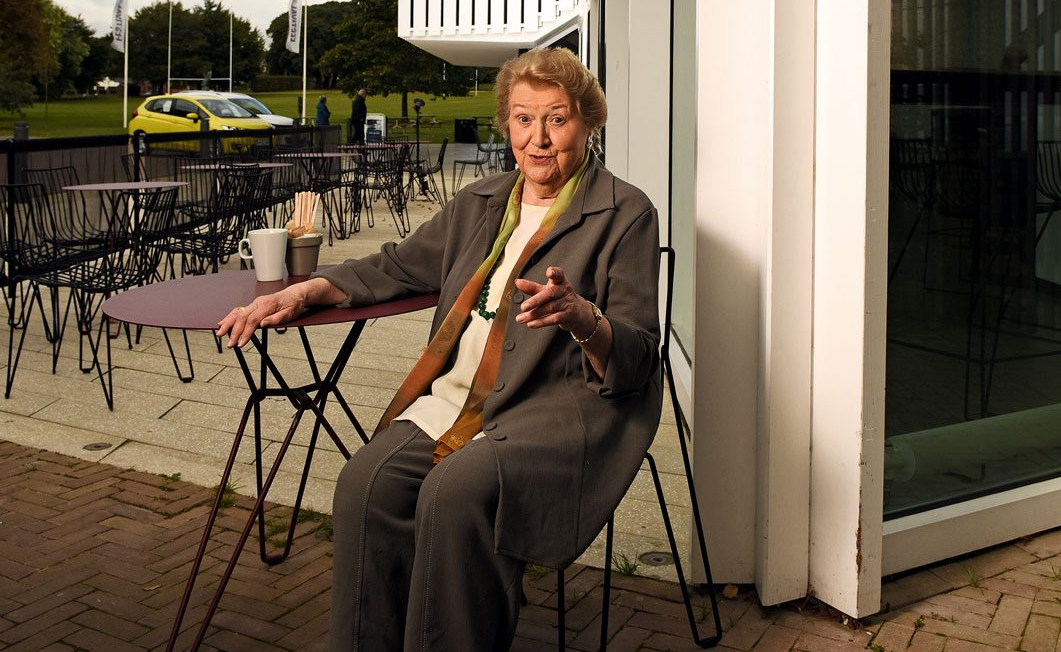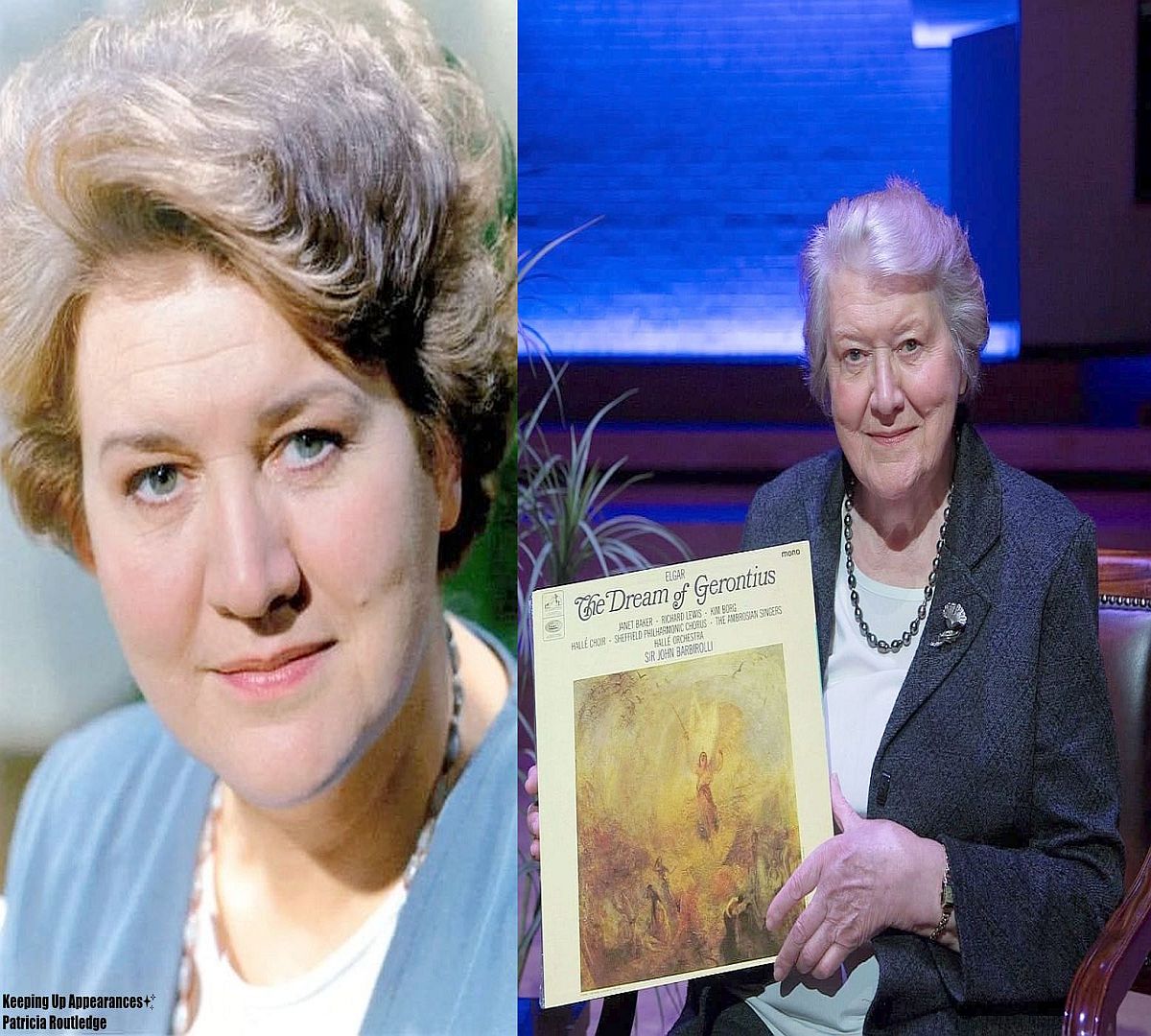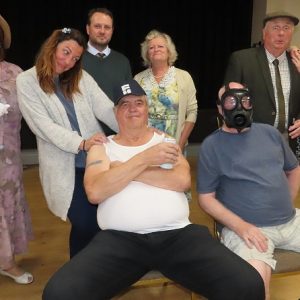Patricia Routledge: A Life of Craft, Courage, and the Curious Case of Beatrix Potter
When Dame Patricia Routledge stooped to peer beneath a child’s bed in a 2022 documentary, a twitching nose and tiny pink paws emerged into frame. A mouse, uninvited but oddly cinematic, scurried into view, sending a shudder down the spines of many watching The Tale of Beatrix Potter. But for Routledge—one of Britain’s most redoubtable actresses—it was simply another cue, another moment to embody the spirit of the woman whose story she had come to tell.
“I just got on with it,” she says, recalling the scene with the kind of weary amusement only seasoned actors can muster. “There is one scene where a mouse was in the palm of my hand and, of course, he left his calling card.”
It’s a moment that captures so much of what has defined Routledge’s career: poise under pressure, authenticity in art, and an unwavering dedication to storytelling—even if that story involves holding a defecating rodent on national television.
The Unexpected Role of a Lifetime
The Tale of Beatrix Potter was more than a commemorative piece for television. It was, for Routledge, a creative departure. Though beloved by generations for her unforgettable portrayal of Hyacinth Bucket in Keeping Up Appearances, and revered in theatrical circles for her classical gravitas, Routledge had never before taken on the role of presenter. And for a woman who built her career on disappearing into characters, stepping out from behind the curtain was nothing short of unnerving.

“It’s the first time I’ve ever been a presenter, an entirely different exercise from hiding behind a character,” she admits. “There’s a kind of nakedness about it.”
Yet, under the direction of Ian Denyer, Routledge flourished. She helped shape the script, allowing her distinctive voice—refined, intelligent, and quietly impassioned—to guide the narrative. The result was a documentary that not only honored Potter’s literary and ecological legacy, but stood as a personal testament to Routledge’s own artistic integrity.
Despite her initial nerves, the experience turned out to be one of the happiest of her long career. “I’m proud to say we were nominated for a Royal Television Society award,” she says with a wry smile. “Although, in the end, the prize went to a pastry maker from Doncaster. Well, cooking a sausage is considered an artform now, isn’t it?”
A Kindred Spirit in Beatrix Potter
Routledge’s connection with Beatrix Potter is no passing fancy. It began decades ago when she first played the famed author on stage in 1997. “It sounds a bit high-falutin’,” she concedes, “but such was her personality, she took over—and I’ve been fascinated by her ever since.”
It’s easy to see why. Potter was a woman ahead of her time: a visionary artist, a pioneering conservationist, and a scientist who submitted a paper on mycology to the Linnean Society of London (only to have it rejected because of her gender). She defied expectations and social norms, retreating from London to the Cumbrian hills where she preserved the land, bred Herdwick sheep, and created a legacy of storytelling and environmental stewardship.

“It’s due to her and one or two others, such as the Anglican priest Canon Rawnsley, that the Lake District is still as unspoilt as it is today,” says Routledge. “She helped plant the seeds of what became the National Trust.”
It’s a subject Routledge speaks of with reverence, not nostalgia. Like Potter, she has always believed in substance over show—be it in art, conservation, or conversation.
A Life in the Theatre, Rooted in the North
Born in Birkenhead, Routledge took the long road to the stage. She hesitated, unsure whether to make the “wicked stage” her life, but eventually debuted in A Midsummer Night’s Dream in 1952 at the Liverpool Playhouse. Her ascent was steady and distinguished.
Since her 1969 debut at Chichester Festival Theatre—where she played opposite the legendary Alastair Sim—Routledge has appeared in productions every decade, living just a stone’s throw from the venue in West Sussex. “I’ve had a connection with the place since 1969,” she says. “When I first came here to play opposite one of my idols.”
Her performances at Chichester and across Britain have spanned the canon, from Restoration comedy to Brecht, from Wilde to Bennett. It was Bennett, in fact, who famously had to woo Routledge for Talking Heads, his iconic monologue series.
After she turned down a stage role he offered, Bennett wrote to her in desperation: “Please reconsider; I will walk barefoot to Jerusalem if only you will change your mind.” She did not—but thankfully, that wasn’t the end. Her searing 1988 performance in A Lady of Letters would earn her a BAFTA nomination and solidify her as one of the foremost interpreters of Bennett’s idiosyncratic voice.
“It’s all-absorbing doing a play of any kind,” she explains. “Particularly a monologue. It rules your mind for a certain amount of time.”
Defending the Craft
What troubles Routledge about modern television is not the proliferation of content, but the loss of craft. “It’s all so busy and restless now,” she laments. “What’s alarming is the presumption that we can’t concentrate for very long, not even for a scene of more than 20 lines.”
The decline of the sitcom, too, dismays her—especially the tendency of modern performers to signal punchlines with forced gestures and expressions. “Trust the audience and trust the material,” she says sternly. “Mannerisms are dictating to the audience. Unacceptable!”
Her own comedic masterclass as Hyacinth Bucket, the social-climbing whirlwind of Keeping Up Appearances, remains unmatched—a performance steeped in character truth rather than exaggerated caricature.
Routledge credits her early experiences in the music halls of the North for her understanding of audience rapport. “Music hall was a great test—it was one-to-one with the audience,” she recalls. “The greats—Frank Randle, Norman Evans, Robb Wilton—they took 30 years perfecting their act.”
The Woman Behind the Curtain
Routledge is not one for idle questions or media fluff. She will not tell you her favorite color or dish. What she will tell you is that she has no professional ambitions left—only a desire to do good work with good people.
As she reflects on her journey—from Liverpool to London, from Chichester to the Lake District—there’s a sense that Routledge has built a career on her own terms. Not flashy. Not fashionable. But quietly, commandingly brilliant.
She agonized over whether to become an actress. She never married the spotlight, but earned its devotion. And even now, in her ninth decade, she commands it still—whether addressing a theatre crowd or lifting a mouse to the camera, her presence luminous and unshakable.
Dame Patricia Routledge may have shared the screen with rabbits, sheep, and rodents in her turn as Beatrix Potter. But make no mistake: she remains one of the last great lions of the British stage.
Let me know if you’d like this tailored further for a magazine layout, podcast narration, or web publication format.





